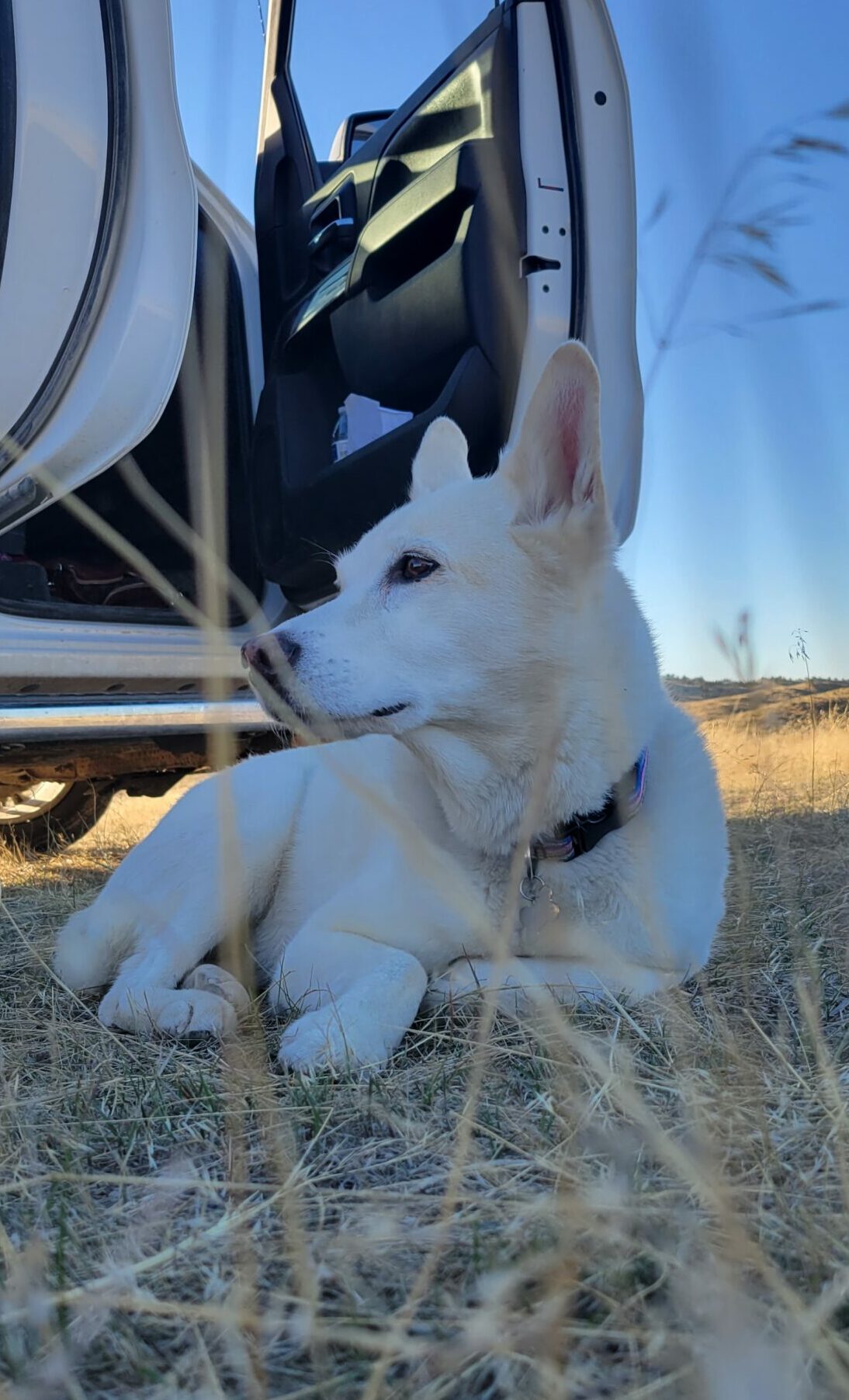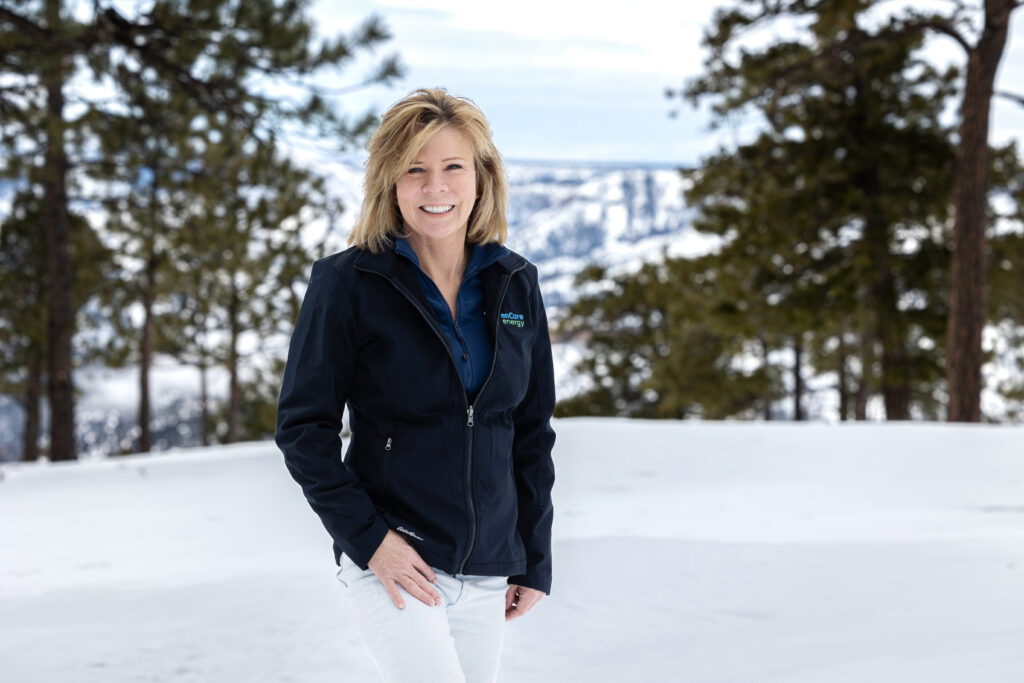Today’s Lesson: One of the great things I have learned working in the mining industry is how to be different, how to be creative and how to move fast.
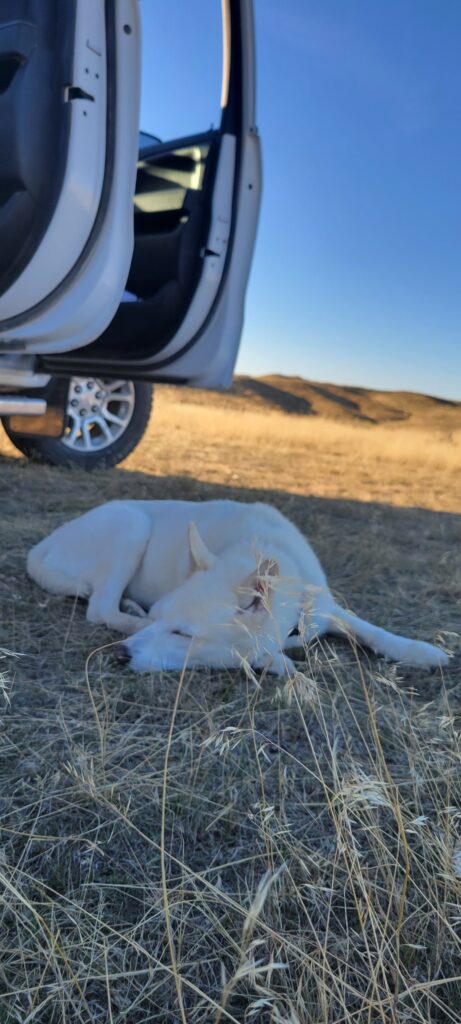
My dog passed away a few days ago and I am heartbroken. She was a rescue from the Mae Bachur animal shelter in Whitehorse, Yukon having been a repeat runaway. A typical sled dog, a pure white husky, they had named her Laika – Russian for husky and it stuck. We were very fortunate to have had 14 wonderful years with her and very fortunate to work in the exploration and mining sector doing things that kept us out of office life, spending time with our dogs as we travelled around. We couldn’t take them everywhere, definitely not on the road as we marketed the companies, but when it came to the exploration part of the job, Laika was there. She travelled with us from gold exploration projects in Canada’s Yukon to uranium processing plants in South Texas (sometimes only to stay and wait in the truck) to former gold mines in Colorado.
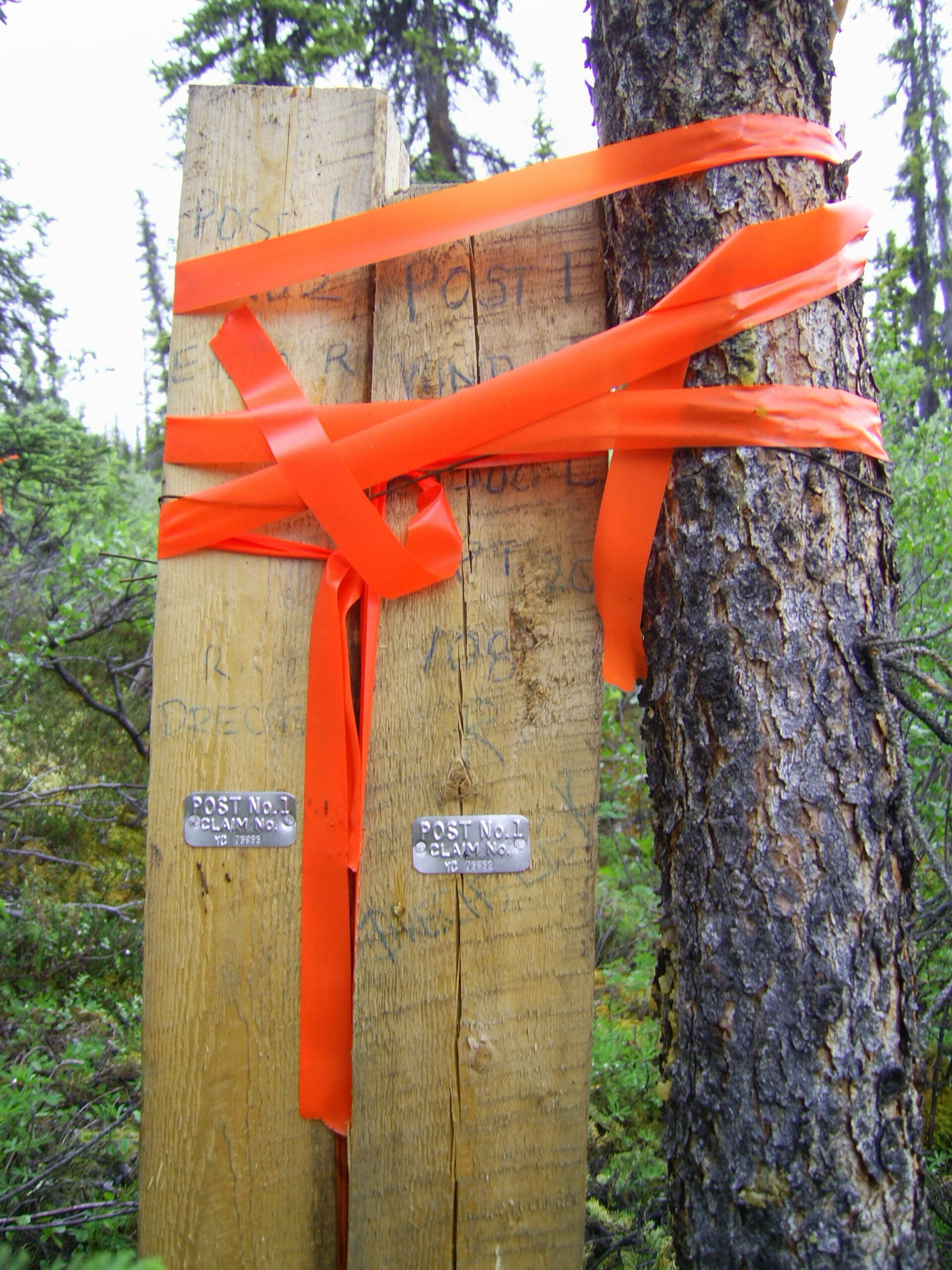
I think the happiest I ever saw her was in 2022 when Laika, Kayla (our other dog), my husband Bill and I camped out in Buffalo, Wyoming and staked mining claims. In Wyoming, staking mineral claims is wonderful – old-school, with wooden posts to be driven in the ground and location markers and metal tags to be followed up with notice to surface rights holders and the local mining recorders. The evenings in the hotel did nothing for the runaway sled dog, but the days out on the land as Bill pounded stakes in the ground alongside my son and the rest of the crew, those were gold for Laika. She even enjoyed travelling with us to speak to the ranchers (who owned surface rights) about what we were doing on the land, all legally of course.
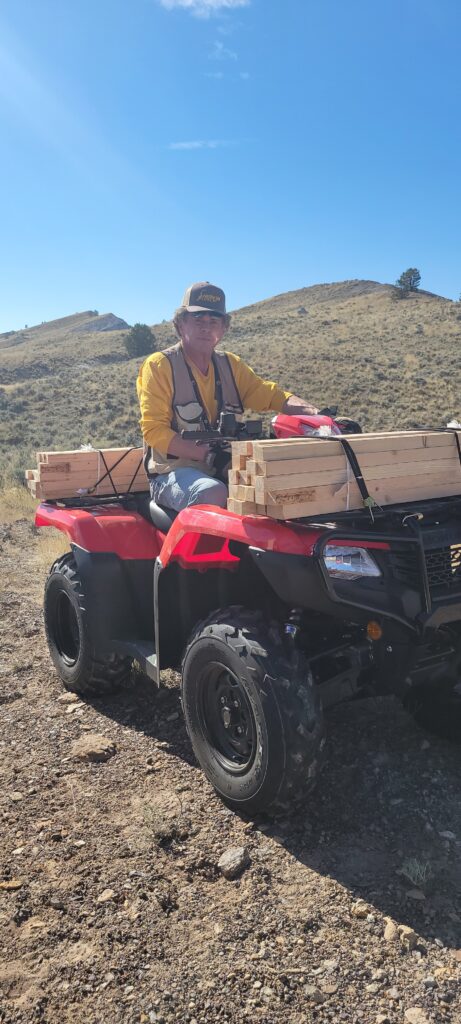
Some days I would sit there in the middle of nowhere, so it seemed, with Laika and Kayla, nailing metal claim tags to the posts and wait for Bill to return on the quad (4×4). Laika would wait, curled up in the shade, for Bill to return and with a lot of land to cover, sometimes we would sit in the shade of the truck and wait hours for Bill (always keeping an eye out for rattlesnakes). A true prospector’s dog, Laika was happy because Bill was happy; they were both in their element.
Our most prominent staking caper did not include Laika; for that one she was comfortably at home, probably lounging on the couch, upside down and sound asleep. Our most infamous staking caper involved metal tags, not staking and it was the one that made national news in 2011 – which became known as the Great Staking Tag Caper.
It happened at the annual Mineral Exploration Roundup in Vancouver in January 2011. Our company was quietly preparing to stake a large claim block of gold targets in Canada’s Yukon and we were days away from a very cold winter staking program – just like Wyoming with wooden posts and metal claim tags (issued by the government) – via helicopter. Bill and his team were taking in a presentation by the Yukon Geological Survey which, unknown to us, would highlight the very area we were about to stake. After seeing this presentation people grabbed their phones and dashed out of the room and it was obvious to our team that people saw an opportunity to stake gold claims and there was going to be a rush. We had to buy time.
We moved fast and decided the only course of action was to buy up every single metal claim tag used for physically staking and claiming ground in the Yukon, leaving competitors hanging for days until government regulators stepped in.
Before buying up every metal claim tag, we did check with all the mining recorder offices in the Yukon to make sure the purchases were legal. It had never been done before, but it was completely legal. Not popular, but legal. My job was using all the credit cards I could find in the office to buy the metal tags, and the mining recorder was clear – one shot to clear on the card. If Visa or Mastercard did not approve, the deal was off. They pleaded with us to leave a few for the independent prospectors but we said no, instead any prospector who called or went in looking for one could call us and it would be free to them.
The rub is, without a metal claim tag, anything you stake is not valid. All in, it cost us $140,000 ($2 a tag) to buy up the entire supply of 70,000 tags — and a head start on the rest of the rush for the winter staking season. Fortunately, we didn’t have to resort to our 2nd plan – buying up every claim post.
We bought time, which was all we wanted, and within a few days the government had come up with several new rules including allowing people to stake claims using posts and handwritten notes with those numbers, until the new tags arrived in a few weeks.
We received a few angry calls, one from a prospector who wanted tags (which we happily sent to him). I am sure our actions made us unpopular with government but hey, it’s business.
